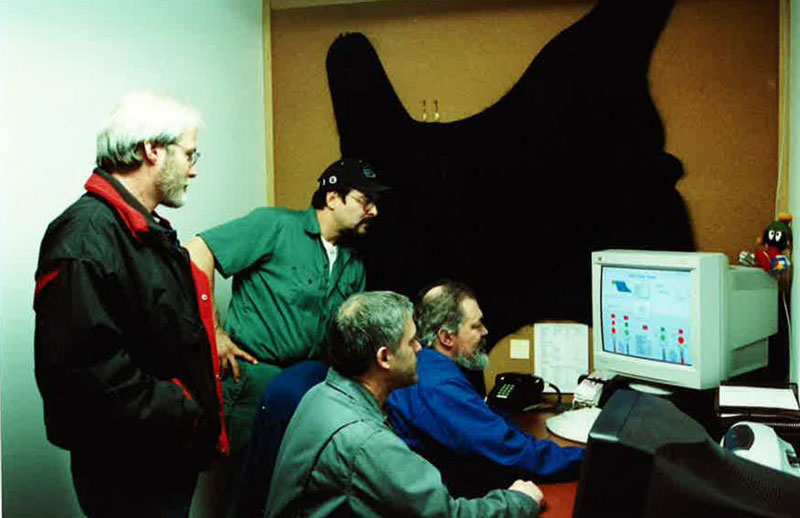
Cordova Electric Cooperative Information
Cordova Electric Cooperative (CEC) is the sole provider of electric energy in the remote, coastal community of Cordova, Alaska. Cordova is not connected to the State Highway System, and CEC is not connected by transmission line to other communities. As a micro grid electric cooperative, CEC owns and operates all power production and distribution facilities for the whole community.
CEC is a small, nimble organization noted for creativity, innovation, talent, and achievement. The challenges of the energetic coastal environment in the North Pacific and the remote nature of the community attracts and retains rugged, independent, success-oriented individuals that define the employee team.
CEC is member-owned and governed, and the structure of CEC strives to provide excellent customer service, reliable delivery of electricity, and cost-effective operation of the utility. The self-governed, non-profit nature of the organization allows the flexibility to meet the specific needs of our member-owners. Several unique characteristics distinguish Cordova Electric Cooperative among electric utilities:
- Commitment to Members – CEC is guided by the principle that our success is measured by the benefit provided to our customers.
- Underground Utilities – CEC is a 100% underground electrical system. This assures reliable operation during wind, snow, and ice storms.
- Innovative – CEC not only seeks unique solutions to unique challenges; we also develop them.
- Environmentally Conscious – Development of low-impact hydroelectric projects, efficiency and conservation initiatives have positioned CEC to produce as much as 80% of the community’s electricity with renewable energy.
- Commitment to Employees – CEC employees are committed to excellence, and CEC is committed to maintaining a safe, rewarding work environment that acknowledges achievement, balances employment with personal life, and strives to attract and retain quality employees. The bargaining unit employees of the cooperative are represented by IBEW Local 1547 with which CEC has a great working relationship.
- Deployment of Technology – CEC has a highly automated, state of the art control system that provides efficient and effective operation of the utility, and provides the opportunity to deploy emerging micro-grid and smart-grid technologies. CEC constantly evaluates and considers new technologies and the opportunities they provide. CEC has retrofitted the entire community with energy-efficient, fuel-saving LED street lighting.
- Management – CEC has a seven-member elected board of directors representing a balanced variety of skills, perspectives, and vocations. The management team houses a broad range of skills including entrepreneurship, business administration, renewable energy plant construction, professional electrical engineering, project management, system automation and integration, information technology management, financial and human resources expertise, and excellent verbal and written communication skills.
- Business Ethic – CEC has developed strong partnerships with agencies, vendors, and consultants. CEC places high value on relationships, seeking to be an employer of choice, and a customer of choice. CEC is recognized as a good company to work for, and a good company with which to do business, noted for honesty, directness, and fairness in our quest for value.

History
Originally the municipality of Cordova provided electric energy to the community. In 1978 the citizens of Cordova organized and voted to form a rural electric cooperative.
These visionary citizens named the utility Cordova Electric Cooperative, Inc. and assumed member ownership and stewardship of the Cooperative.
The Cordova Electric Cooperative headquarters building is located at 705 Second Street in Cordova, Alaska. Along with the headquarters building there is the Orca Power Plant facility, Eyak Service Center, Humpback Creek Hydroelectric facility and Power Creek Hydroelectric facility.

DATA
Cordova Electric Cooperative, Inc. was energized on September 30, 1978.
- 1,566 customers
- 78 miles of distribution – all underground
- 1 substation
- Generating capacity of 18 megawatts
- Orca Diesel Plant – 10.8 megawatts
- Power Creek Hydroelectric – 6 megawatts
- Humpback Creek Hydroelectric – 1.25 megawatts

